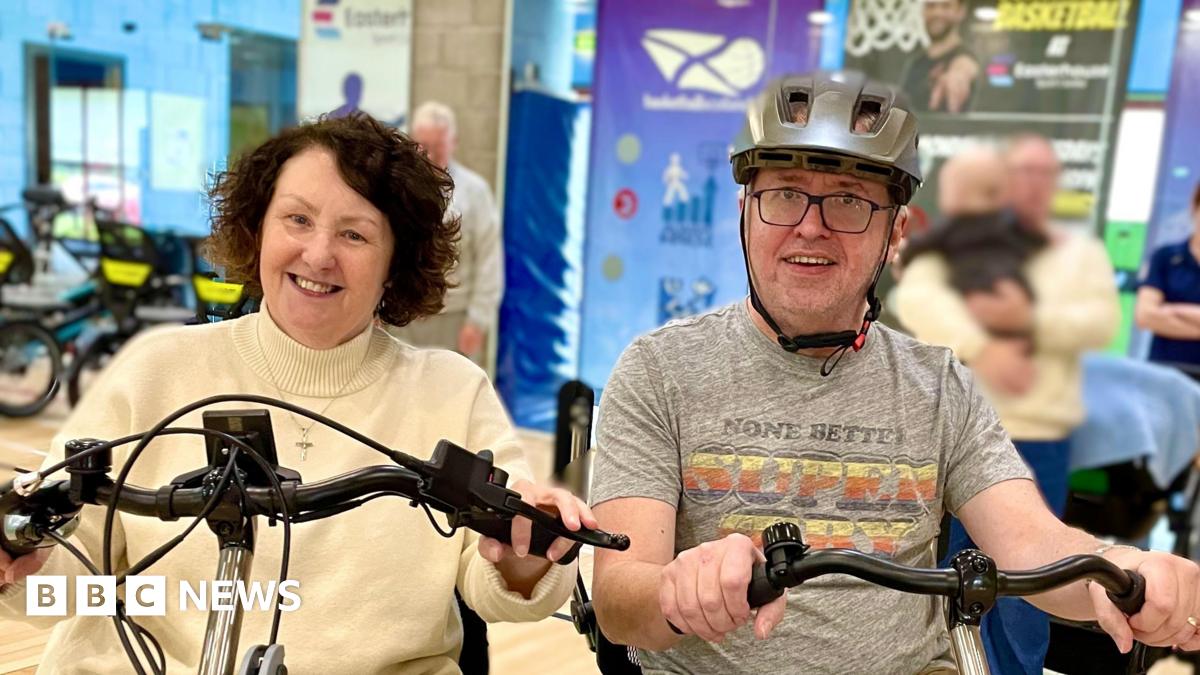Parkinson’s symptoms arise after substantial loss of the dopamine-producing cells in an area of the brain known as the substantia nigra.
Amanda Mckay, from Parkinson’s UK, said that there are over 40 different types of symptoms and “no two people are the same.”
As people live longer with the condition, symptoms can become more aggressive and debilitating – which can impact mobility and stability significantly.
Ms McKay says: “I think the key is to encourage people with Parkinson’s to be active, that’s a prescription in itself.”
She says it is important for people to find something they enjoy doing because then they are likely to do it more often.
Physiotherapist lecturer David Hegarty says exercise has similar benefits to medicine for Parkinson’s patients without the side effects.
People build stronger muscles and better cardiovascular fitness, which in turn reduces symptoms, he says.
And Teresa Deeney agrees.
“The independence, joy and fitness it gives my husband is a tonic to his health and mental wellbeing,” she says.
